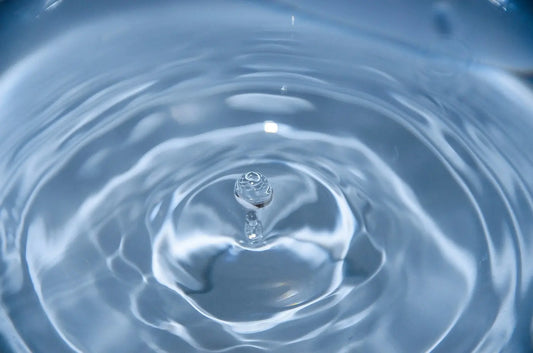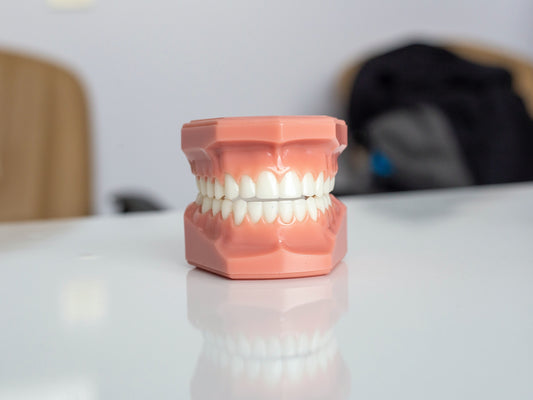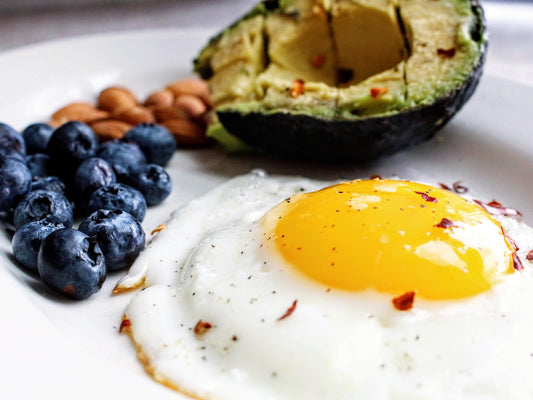Proper breastfeeding promotes the child's growth and development. With all the responsibilities on a mother’s shoulders, she might unintentionally fail to replenish her needs. This can consequently affect the baby’s diet and her own health as well.
During breastfeeding, the mother produces 1.82 - 7.91 oz of milk [1] that contains almost 87% [2] water content and other important minerals. Considering that a baby needs to be fed 7-13 times a day in the first month, moms can be easily put at risk of dehydration and loss of essential minerals [3].
Some moms have a lot on their plate while they're in the breastfeeding phase. It is not always convenient to drink 8-16 glasses of water a day. In fact, you might not even want to drink plain water all the time! This article discusses what other fluids you can add to your diet to replenish essential nutrients and minerals and how much you should drink to keep yourself healthy during this demanding period.
Importance of staying hydrated during breastfeeding
Breast milk is mainly water full of proteins, lipids, carbohydrates, antibodies, and minerals such as sodium, magnesium, calcium, and phosphorus [2]. These nutrients leave the mom's body every time she releases milk. To keep herself hydrated, she is required to fulfill the water and mineral needs of the baby as well as her own.

If your diet is devoid of adequate fluids and vitamins, you can quickly become deficient, adversely affecting both your and your infant's health. Don't forget that you are feeding two bodies during this phase. This essentially means that you have to drink more than the average recommended amount of water intake [4].
Other than this, dehydration during this period can also occur due to exercising, excessive sweating, fever, diarrhea, vomiting, or an underlying medical condition.
Adjusting to a new routine of taking care of your newborn while fulfilling other responsibilities is not easy. Take it slow and check the symptoms that might indicate dehydration or any other illness.
Adverse effects of dehydration
If you're dehydrated, the quality and quantity of the milk production can be affected [5]. The baby might not get the best out of your milk, and it can affect its health. With a low milk production, a baby's feeding schedule can also be disturbed.
However, know that drinking more than the required amount of fluids will not increase the milk supply; it will only regulate the production.
Other symptoms and side effects of dehydration include:
- Constipation
- Dry skin and chapped lips
- Dryness inside the mouth
- Mood swings
- Fatigue and lethargy
- Nausea
- Muscle cramps
- Frequent vertigo
- Headaches
- Lighter breasts
- Darker urine
- Increased irritability
If you notice any of the above symptoms, contact your doctor right away!
Babies have small tummies and small fluid reserves. This coupled with the fact that they have a high metabolism rate, means that they need to be replenished very often. If the mom is dehydrated, she won't be able to produce the optimum amount of milk, which in turn can dehydrate the baby.
How much fluid do moms really need?
When a mom breastfeeds, she releases oxytocin that is responsible for triggering thirst [6]. The best way to maintain your fluid levels is to drink enough to never feel thirsty. If you're feeling thirsty often, then it indicates you are dehydrated. The amount of water required varies from mom to mom. It depends on age, medical conditions, weather conditions, and activity level.
Experts have recommended that nursing mothers drink at least 128 oz of fluid. This amounts to approximately 13 glasses of water [7]. You can reach this goal by including water-rich foods in your diet, such as fresh vegetables and fruits, and drinking various fluids.
Why is water not enough?
Breastfeeding depletes not only water content but also certain essential nutrients from the mother's body. Drinking plain water is not enough to replenish the continuous depletion of minerals unless you strictly include vitamin-rich vegetables and fruits in your diet. Although water is the perfect source of hydration as it doesn't contain caffeine or sugars, you can get bored and not drink enough.
If you include hydrating drinks containing electrolytes and minerals, you can replenish your needs quicker and more conveniently without the need to add extra supplements and foods to your diet.
Other options to keep you hydrated
You can keep yourself hydrated by including certain water-rich foods in your diet.

- Eat fresh vegetables and fruits such as lettuce, strawberries, zucchini, carrots, pineapples, watermelon, spinach, tomato, cucumber, oranges, potatoes, and broccoli.
- Include vegetable smoothies and fresh fruit juices in your diet.
- Coconut water is rich in potassium, sodium, and chloride. This delicious drink is also a great way to replace the depleted electrolytes in your body.
- Add cow's milk or nut milk to your cereal for breakfast.
- Make different soups or broths. You can also store them in the refrigerator to save time that goes into preparing such meals.
- Include electrolyte-enhanced drinks in your diet.
How can electrolyte drinks aid your experience?
During pregnancy or breastfeeding, a mother needs extra micro and macro-nutrients for the development of the fetus or to improve the quality and quantity of breastmilk [8]. A calorie restriction of any sort can have a detrimental effect on the baby [9]. Micronutrients include:
Sodium: Sodium is a critical mineral in breast milk that boosts the baby's immune system. In the early stages of breastfeeding, this particular nutrient is produced in higher amounts. Additionally, it's essential for improving the mother's mental focus and energy levels [10].
Magnesium: Magnesium aids in keeping the mom's stress levels at bay. Depression and lousy mood negatively affect milk production, so it's important to take an adequate amount of magnesium to regulate the adrenaline.
Zinc: This mineral is vital for regulating skin, reproduction organs, and immunity.
Potassium: Potassium helps balance sodium and improve the mom's blood pressure.
Besides the nutrients mentioned above, a mom requires Vitamin A, D, B6, B12, folic acid, Riboflavin, calcium, and Niacin [9].
Electrolyte drinks that contain organic ingredients and essential nutrients can help boost nursing moms' overall health. Not only do they help in hydrating the body, but they also improve gut health, appetite, mood, energy, muscle health, nerve functions, and regulate hormone production.
It is imperative that a mother chooses the right kind of electrolyte drink. Many hydrating drinks contain harmful chemicals, caffeine, and a high number of sugars, which are not healthy for nursing women and the baby's health [11].
If you're a working mom or have a busy schedule, it's hard to check your diet and take all the vital nutrients. To make your life easy, try including our perfectly balanced electrolyte mix that contains sodium, magnesium, zinc, and potassium to replenish your needs. It's free of artificial sweeteners and harmful chemicals that could harm a nursing mom in any way. In addition, you can enjoy this electrolyte-enhanced drink in many different flavors, so you’ll never get bored!
Avoid Overhydration

A lot of water intake can disrupt the electrolyte balance in your body. As a result, you will feel a frequent urge to urinate, which drives away water from your breasts and can disturb milk production [12]. Moreover, running to the toilet every hour is nothing but a hassle. Drink to thirst, and don't gulp down gallons of water!
Extra tips to stay hydrated!
- You can always keep a water bottle with you and drink a few ounces before and after your breastfeeding session.
- If you're forgetful, install hydration reminder apps on your phone.
Drinks to avoid
- Avoid artificial fruit juices as they contain unhealthy sugars and preservatives more than the actual fruit content [11].
- Avoid sodas as they contain almost 9 tablespoons of sugars per can [13]. If you're craving sugar, you're better off adding 1 tablespoon of sugar to a glass of fresh fruit juice.
- Stay away from drinks that contain caffeine, as it can dehydrate your body and potentially affect the baby's mood [14]. It's generally OK to have 1 or 2 cups of caffeinated drink per day but it’s important to discuss it with your doctor to avoid any complications.
- There's a common misconnection among people that alcohol can boost breast milk production. It is false! Alcohol can negatively affect the quality and quantity of your milk [15]. If you can't avoid it altogether, make sure there is an interval of 4 to 5 hours between alcohol intake and breastfeeding sessions. Better contact your doctor or healthcare provider regarding alcohol intake.
Conclusion
Breastfeeding is a demanding task, and a nursing mom is responsible for her baby's health and her own. Breastfeeding can result in severe dehydration if the mom's fluid intake is inadequate. Moreover, she needs to keep her nutrients and vitamins in check.
The best way to accomplish proper hydration is to keep a water bottle with you and include fresh fruits and leafy vegetables in your diet. Better yet, include electrolyte-enhanced drinks in your diet to boost energy, improve health, and keep yourself hydrated.
For more information on the foods that can help replenish the lost electrolytes in our body, check out our article on the 12 best drink sources of electrolytes.
References





























